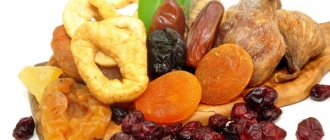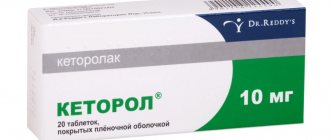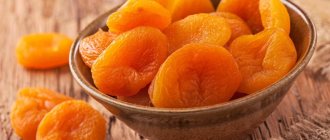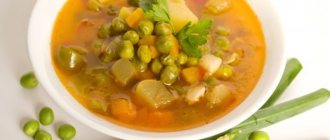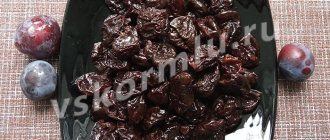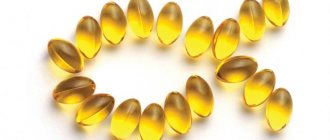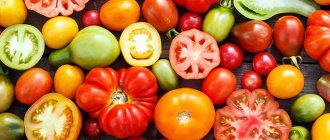With the advent of a baby, a huge number of changes occur in the life of every mother. In the first months of the baby’s life, the mother is forced to especially carefully monitor not only what she eats, but also what she drinks. The recommended fluid intake, which is necessary to maintain biochemical processes in the body, provided that mother and baby are completely healthy, is 2-2.5 liters per day.
But drinking only clean water can very soon get boring and the question will arise as to how else you can diversify the drink menu for a woman during breastfeeding. In addition to weakly brewed tea, let’s remember about the healthy and familiar apple compote from childhood. But is it really that useful during breastfeeding? Let's try to answer this question.
Is it possible to drink this drink while breastfeeding?
A drink such as fresh apple compote, being hypoallergenic and made from high-quality products, can be very useful.
You can introduce it into your diet 3-4 weeks after birth. But this is if the baby does not have a hereditary tendency to allergic reactions. This should be done with caution, gradually increasing the volume of the drink drunk.
Conclusion
Based on all of the above, let us summarize some results. Doctors admit that eating apricots for a nursing mother is not only not dangerous, but even beneficial. Only everything is good in moderation. A new fruit should be introduced gradually, increasing its daily dose, if the baby does not experience any negative reactions.
And in order not to harm the baby, when adding fresh apricots to the menu of a nursing mother, follow certain rules.
- Wash all fruits thoroughly before eating.
- Buy products from small traders, even if the price is slightly higher than in supermarkets where large companies organize deliveries.
- You need to buy apricots and eat them only during the season, and you should start doing this not at the beginning, but by the middle of the season.
- Before consumption, check with all your relatives to see if anyone is allergic to apricot products.
- Apricots should not be eaten on an empty stomach, after meat dishes or fatty foods. You can't overeat them.
- If apricots give you an upset stomach or your baby experiences constant colic, eliminate apricots from your diet until your baby is three months old.
The most important thing is to constantly monitor your baby’s health and how his body reacts to new food on his mother’s menu.
The best immunostimulant for an infant is mother’s milk, because it is enriched with all the necessary vitamins and microelements that are important for the full development of the child. However, during the lactation period, a woman is not allowed to consume all the food products that she liked to pamper herself with before the birth of the long-awaited baby.
Many fruits and vegetables pose a serious threat to a child’s health, causing the development of allergic reactions, dermatitis, and diathesis. But is such a tasty and healthy apricot included in this list? Is it even possible for young mothers to eat apricots while breastfeeding?
Benefits for breastfeeding
In the postpartum period, as well as during pregnancy, a woman’s body experiences increased stress and needs additional support. Fresh apple compote will help replenish your supply of vitamins and minerals. Just one serving of the drink contains vitamins C, E, PP, group B, as well as microelements such as:
- calcium;
- potassium;
- magnesium;
- phosphorus.
Apples contain a large amount of iron. Their use is recommended:
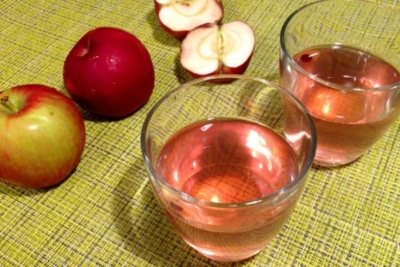
- with anemia;
- to reduce the risk of cardiovascular diseases;
- to normalize blood sugar levels;
- to improve immunity.
And a large amount of fiber helps improve the digestion of a young mother. Therefore, compote made from fresh apples during breastfeeding will not only quench your thirst perfectly, but will also bring many benefits.
Composition and beneficial qualities
The chemical composition of dried apricots is rich and varied:
- trace elements: Ca, P, Fe, Mg, K;
- organic compounds: retinol, ascorbic acid, tocopherol, thiamine, riboflavin and nicotinic acid;
- alimentary fiber;
- sugars: cane, fruit and grape;
- organic acids: hydroxysuccinic and dioxysuccinic.
A woman’s caution in choosing foods during lactation is justified, because everything that enters her body to some extent becomes part of the milk and, accordingly, is passed on to the child. Often the baby’s well-being depends on this factor.
Dried apricots can be an excellent alternative to store-bought sweets. It will help cope with postpartum depression, bad mood and has many beneficial properties. Even doctors note its benefits for the body of a young mother and advise including it in the daily diet.
In general, the following properties are identified that the product has on a woman:
- tidies up the activity of the cardiovascular system and gastrointestinal tract;
- improves blood filtration by the kidneys, due to which excess fluid is removed from the body and swelling is relieved;
- lowers blood pressure;
- helps strengthen the central nervous system and nerve conduction;
- promotes the removal of harmful cholesterol from the body, prevents the development of atherosclerosis and strengthens the walls of blood vessels;
- stabilizes the iron content in the blood, helps fight iron deficiency anemia and anemia;
- improves the appearance of the skin, nail plates and hair, strengthens hair follicles, gives hair shine and silkiness;
- effectively fights constipation and also prevents it thanks to dietary fiber and sugars included in the dried fruit;
- promotes tissue regeneration, helps reduce the severity of stretch marks after pregnancy;
- cleanses the body of toxins and toxic substances, as a result of which the baby receives milk with a minimum amount of harmful substances.
Helps with constipation in babies
The frequency of bowel movements is different for all babies and depends on many factors. Basically, a rare bowel movement of a baby indicates that the nutrition that the baby receives is completely absorbed by his body and is completely suitable for him.
But still, a child holding stool for too long should alert parents. And also regular problems with stool should be a reason to contact a gastroenterologist.
If constipation is not a symptom of someone with a serious illness, then:
- Most often, the problem is a lack of fluid in the child's body. Fresh apple compote is fully capable of coping with this task.
- The second common cause of constipation can be a lack of potassium in the body. With a lack of this substance, intestinal motility slows down, which makes the process of defecation itself difficult. The apples from which the compote will be made contain large quantities of potassium.
Together, these factors will help the baby cope with such an unpleasant, but quite common problem.
In what cases should a nursing mother not do it?
Fresh apple compote is incredibly healthy, but you should remember that a young mother should introduce it into her diet slowly and in small dosages, while carefully monitoring the baby’s reaction.
If there are no negative reactions such as bloating, allergic manifestations or loose stools, then drinking this drink can be continued in moderation.
However, it is important to know that despite such a beneficial effect of compote on the female body, in case of exacerbations of gastritis or pancreatitis, it is worth abandoning it completely. Including, it is completely undesirable to use compotes for diseases such as:
- diabetes;
- stomach ulcer;
- allergy.
Which fruits are better to cook from – dried or fresh?

Therefore, dried fruit compote will be as rich in vitamins and microelements as fresh apple compote. Dried fruits compote:
- contains vitamins A, B1, B2, B3, B5, B6, as well as minerals: potassium, phosphorus, magnesium, calcium, iron, which are so necessary for mother and baby;
- tones;
- improves mood;
- strengthens the immune system;
- helps a woman in postpartum recovery of the body.
When choosing which fruit to make compote from, you should be guided, to a greater extent, by the quality of the original product.
It’s great when you have the opportunity to use, in cooking, apples from the current year’s harvest, grown organically without the use of pesticides and chemicals.
But the fresh product has one significant drawback - seasonality and a relatively short shelf life. Therefore, for women who give birth to a child in the cold season, when there are very few natural products on store shelves, or they are very expensive, dried apples will come to the rescue. Provided that the drying was carried out using the most gentle (shade) method, such a product will retain no less useful qualities.
Can you eat apricots while breastfeeding?
During lactation, all new foods are introduced into the mother’s diet in minimal quantities and at intervals. The same applies to apricots. There is no need to completely abandon them.
It is also important to consider the age of the baby. Most pediatricians agree that it is not permissible for a mother to eat apricots during the 1st to 3rd month of a baby’s life, as it can cause colic and digestive system disorders. If your baby is over 3 months old, you can safely include fresh fruits in your diet, provided they are ripe and grown without the use of chemicals.
On the first day you can eat no more than 2-3 fruits; on the second day, refrain from taking them and watch your child. If no negative consequences of introducing apricots into the diet have occurred, you can increase the number of fruits to 5-6. But you can drink compote of this sunny and juicy fruit throughout the year.
Dried fruits should be treated with caution, since they contain the highest concentration of sugar, which is undesirable for both mother and baby.
The best food for a young child, especially the first months of life, is mother's milk. It is healthy, tasty and for babies. It contains a full range of essential nutrients, vitamins and enzymes. Breastfeeding ensures normal growth and full development of the child, the correct formation of his brain and intellect. Mother's milk contains immunoglobulins and immune cells that protect the baby from various infections (intestinal, hepatitis, diphtheria, etc.) and stimulate the proper development of the baby's own immune system. Breastfed children suffer from allergies much less frequently than bottle-fed children. A necessary condition for producing high-quality breast milk in the right quantity is a balanced diet for the mother during breastfeeding. Women are especially attentive to the products they consume during breastfeeding. And even such a harmless and beloved fruit as the apricot raises a bunch of questions related to whether it can be eaten while breastfeeding and in what form, whether it affects the composition of milk and whether it can harm the baby.
This is interesting!
The homeland of apricot is China, where they knew about it already 2 - 3 thousand years BC. and even then it was used for medicinal purposes. Later, the apricot spread throughout Asia, and it came to Europe from Armenia, there in Europe, then it was called the “Armenian apple.” It came to Russia from the West in the 17th century; by the way, out of 10 species of apricot trees, only 3 wild species can be found here. Most often, the common apricot grows as a single tree, but sometimes there are sparse groves of apricot trees. Apricot trees (wild) can often be seen along roadsides in the middle zone, while cultivated varieties are grown on fruit farms.
Features of preparation from dried fruits
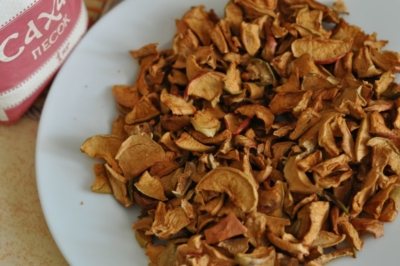
To prepare compote, it is best to use self-dried apples, since in the production of store-bought apples, preservatives and dyes are most often used.
- Before cooking, dried fruits must be thoroughly washed and soaked in warm water for some time.
- After that, you need to drain the water and rinse the dried fruits well again.
- Pour water over the dried apples, put the pan on the fire, add sugar at the rate of 3/4 cup per 200 g of dried fruit and cook for about half an hour.
Contraindications and harm
When preparing compotes, it is important to follow the recipe and choose the right product. All pits should be removed from cherries as they contain amygdalin.
Over time, this substance turns into hydrocyanic acid, which is hazardous to health. Poisoning with such acid can even lead to death.
Important! It is better not to eat berries from the drink at first. They can be consumed only when the baby reacts normally to the compote
It is not recommended to drink cherry decoction if you have digestive problems or high acidity. In addition, in case of pronounced exacerbations, it is better to refuse the drink altogether.
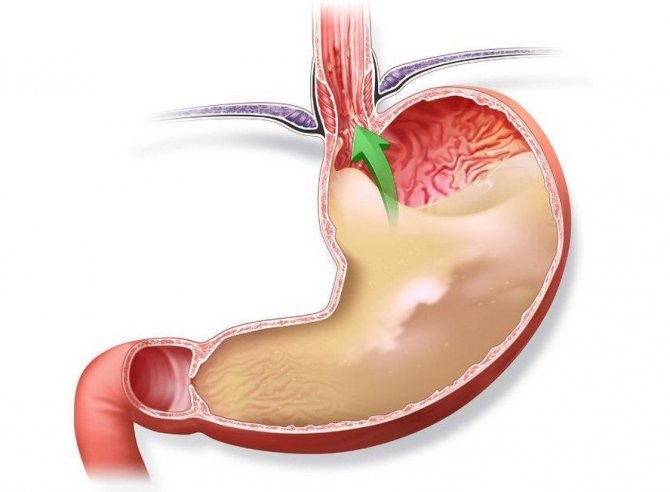
The most delicious recipes
There are many cooking recipes, so every housewife can choose the one she likes. But it is always important to avoid overcooking the fruit. Then it will be possible to preserve not only their appearance, but also most of the vitamins and microelements.
However, a lot depends on the type of apple.
It is known, for example, that a variety such as Antonovka is recommended to be removed from the heat immediately after boiling. It’s better to let Simirenko apples simmer for a few minutes.
To prepare compote we will need:
- apples 1 kg;
- sugar 250 g;
- water 3 liters.
So:
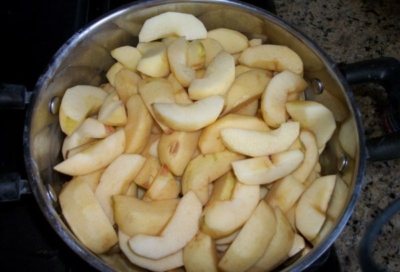
- Apples must be washed, dried, and cored. The fruits should be cut into slices of the same size, this way they will boil at the same time.
- Boil 3 liters of water in a saucepan.
- Carefully place apple slices into boiling water.
- Add the required amount of sugar and cook for 10-15 minutes over low heat. It is necessary to reduce the heat so that the boiling is not too intense, which will help preserve vitamins and microelements in the compote. After which the new mother can drink this tasty and healthy drink.
For those who have a multicooker, the cooking process is greatly simplified: you need to put all the food in the bowl of the household appliance and press the cook button, the smart equipment will do the rest for you!
Video recipe for apple compote:
Berry compote
You can also use berries to make compote. Cherries and plums contain large amounts of vitamin C, which forms and strengthens the immune system, protects against viruses and diseases, improves mood and energizes.
Cherry compote rarely causes allergies, so the drink can be consumed while breastfeeding without risk to the baby. Cherry helps with anemia, improves appetite and perfectly quenches thirst.
To prepare the drink, choose ripe dark burgundy fruits with a small seed and a strong aroma. These varieties include Sofia and Hungarian cherries. Take berries with stems. This will increase the shelf life of the product.
Before cooking, sort the berries and tear off the stems. Small and unripe fruits, as well as damaged and rotten ones, should not be used. You can also use frozen berries for cooking. There is no need to defrost the fruits.
Take 0.5 kg of cherries, sort them thoroughly and rinse. Pour 1 liter of water over the berries and add sugar. For half a kilogram, take 10 tablespoons. Bring the mixture to a boil and cook for 10 minutes over low heat.
Pour the cherry compote into jars, close and store in a warm, cool place.
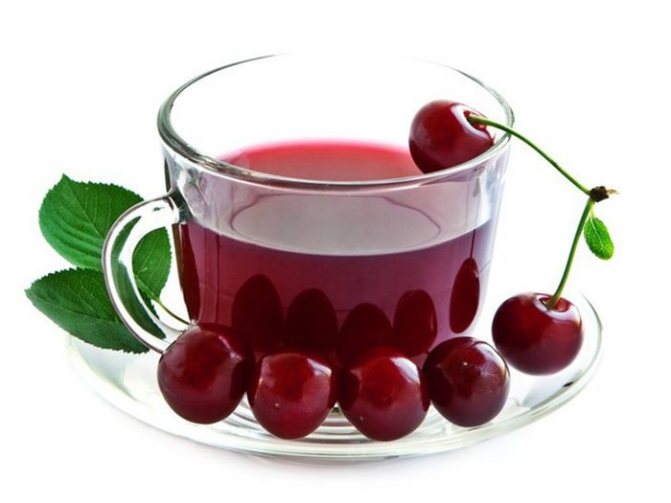
Plums are also good for breastfeeding. They help with constipation, improve digestion and intestinal function. Before cooking, thoroughly rinse and select the fruits. Dry and place in boiling water.
Add sugar. For 250 grams of berries, take 50-100 grams of sugar. Bring to a boil again and once boiling, turn off the heat. Leave the compote covered until it cools down.
You can add green apples to the drink. Peel the apples and cut into slices. Throw the slices into the drink, bring to a boil again and boil for 5-7 minutes. Leave the compote to cool under the lid. Apples diversify the taste and add sourness if the compote is too sweet.
To avoid possible problems for the baby, pediatricians recommend starting with green apple compote. This drink can be introduced into the diet as early as the second week after birth. Then gradually introduce drinks made from dried fruits, berries and other fruits. Don't forget to monitor your baby's reaction.
The main thing when breastfeeding is to use natural products!
During breastfeeding, you should be careful about the drinks in your diet. Not everything that seemed useful before is useful during breastfeeding. Can a nursing mother have compote? Which compotes will not harm the baby, and which ones should be avoided? How to properly brew this drink?
How to properly introduce it into the diet?
You should add this drink to your diet slowly and with caution, observing your baby's reaction.
You should start doing this no earlier than two weeks after giving birth. The recommended safe volume is 40 ml.
If the newborn baby does not experience allergic reactions or digestive disorders, then gradually the consumption of compote can be increased to three glasses per week.
Can I add other dried fruits?
During breastfeeding, it is not recommended to introduce any product immediately. It is worth doing this gradually, giving you the opportunity to understand whether the baby’s body responds well to new products. If everything is fine with mother and child, then:
- a couple of weeks after the introduction of apple compote, it is allowed to add prunes or raisins;
- a month later - rose hips and dried apricots;
- two months later - pears;
- in four - dates and figs.
Is it allowed to eat apples from the drink?
In the first month of a baby’s life, it is not recommended to consume fruits from compote , as they can negatively affect the digestion of mother and baby and lead to increased gas formation and diarrhea.
Tips for consuming compote during breastfeeding
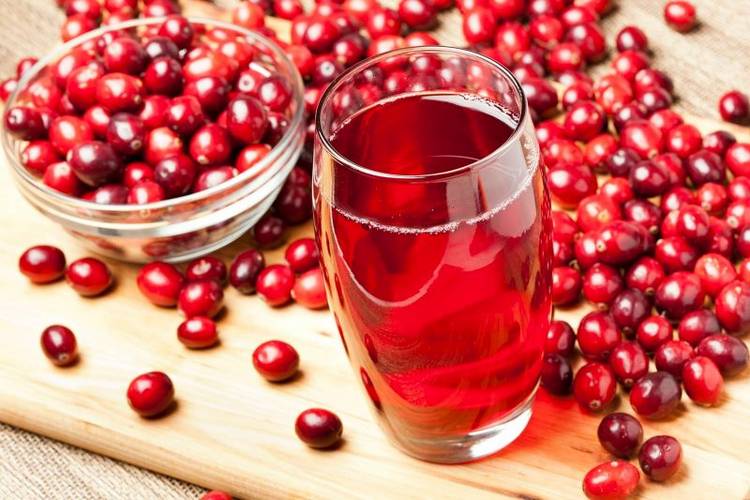
By following these tips for consuming compotes while breastfeeding a newborn, you can not be afraid of harming the baby:
- A woman must be absolutely sure of the quality and freshness of the products, and also take into account possible allergic reactions of the body.
- The less sugar in the drink, the better for both mother and child
- In addition to compotes and other drinks, do not forget about ordinary water. During breastfeeding, the mother should consume at least 2 liters of fluid, half of which should be water.
- When breastfeeding, you cannot immediately switch to any product. If you want compote, then first eat a small amount of what you are going to cook it from. Most doctors recommend green apples, so that's a good place to start. If you feel well, then compote is allowed for you. If your skin breaks out, try something else.
- Freshly brewed compote is considered the most useful. It is advisable to prepare it at the beginning of the day and drink it in the evening. One liter once a week will be just enough.
- You should not drink compotes in large quantities too often, they can only do harm.
As a result, there is nothing wrong with compote, no matter what it is. On the contrary, most of them bring only benefits, namely, they help to recover faster after childbirth, strengthen your immunity and the immunity of the child, and much more. The main thing is to remember to be careful and everything will be fine.
